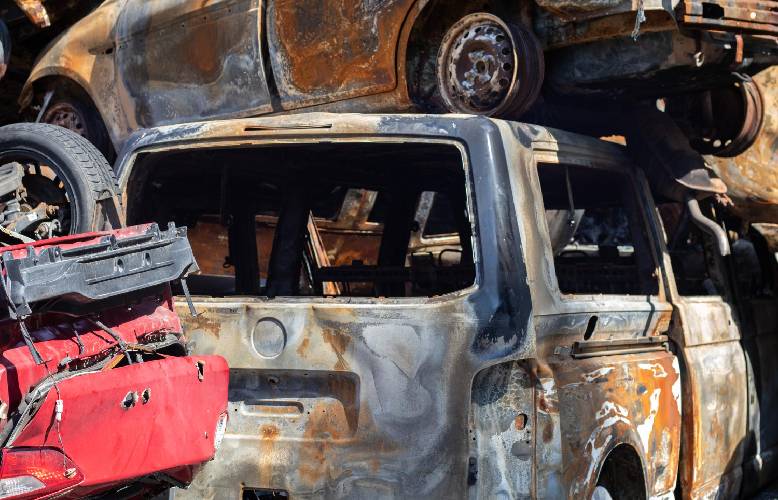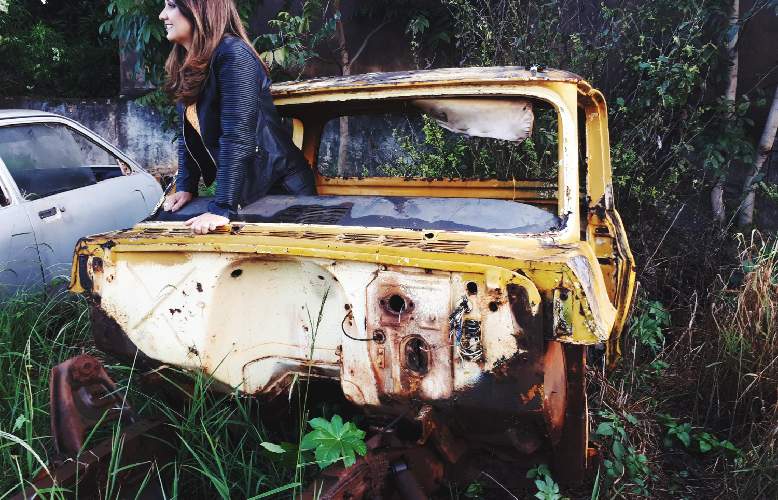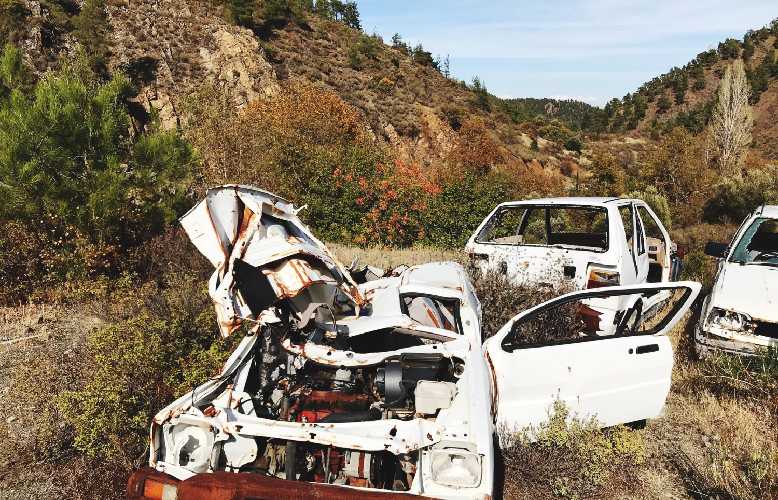An outdated or unusable car sitting in the garage or driveway may seem innocuous to many car owners. The financial burden that these junk cars can eventually cause, however, is frequently overlooked. The cost of retaining a non-functional car can add up over time, from lost space and deteriorating value to continuing maintenance and registration expenses.
Businesses that specialize in buying trash automobiles, such as D & R Enterprise, assist locals in Grand Rapids, Michigan, in rapidly and effectively easing these financial strains. This blog examines why it would be better to sell your trash automobile sooner rather than later, as well as the hidden and not-so-hidden financial consequences of keeping it.
What Qualifies as a Junk Car?
A junk car is typically a vehicle that is no longer operable, costs more to repair than it’s worth, or is considered too damaged or aged to be safely driven. Some signs that a car may fall into the junk category include:
- Frequent breakdowns
- High repair estimates
- Non-functioning essential parts (engine, brakes, transmission)
- Outdated safety features
- Structural damage or rust issues
Even if the car technically still runs, if it’s unreliable or unsafe, it may still be considered a junk vehicle.

The Hidden Financial Burden of Junk Cars
1. Ongoing Maintenance and Repairs
A car can still be a financial burden and a source of attention even if it is no longer operational. Over time, fluids like coolant, brake fluid, and oil can leak, leaving stains or even damaging your garage, driveway, or surrounding landscape. There may be environmental risks associated with these releases. In the meantime, if the car is to be saved or maintained in a functional state, issues like flat tires, dead batteries, or rusted parts might need to be fixed.
Cars, whether or not they are in use, may still need yearly inspections or emissions testing in some jurisdictions, particularly if they are still registered. These minor but recurring issues can become a financial burden, as many owners continue investing in diagnostics or quick fixes, only to find that the car’s actual resale or scrap value doesn’t justify the ongoing effort or cost.
2. Insurance Costs
Depending on state regulations and registration status, even non-running vehicles may result in insurance costs and cause a financial burden. Even if the vehicle never leaves the driveway, the owner may still be legally obligated to maintain insurance if it is still registered and titled. Liability coverage may be required, at the very least. Furthermore, regardless of their condition, cars with a loan or lien frequently need comprehensive coverage.
By moving to a storage-only insurance plan, some owners try to cut costs, but even those lower rates might mount up over time. These expenses mount up quickly, particularly if the vehicle in question is no longer useful. Money spent on insurance for a junk vehicle could likely be better used elsewhere, whether toward a replacement car or more urgent financial needs.
3. Registration and Title Fees
Like many other jurisdictions, Michigan requires yearly vehicle registration costs to be paid to keep the license plate current or an active title, even if the car is not drivable. Every year, the fees might not seem like much, but they are recurring expenses that provide owners of junk or non-operational vehicles with little advantage.
Additionally, if the owner later decides to sell or transfer the vehicle, not paying these fees could lead to financial burden or other issues. The financial burden of maintaining a junk car that no longer provides value increased over time due to these administrative expenses. Many vehicle owners don’t factor in these recurring charges when weighing whether to hold onto or sell a junk vehicle.
4. Depreciation of Value
Every day a junk car sits unused, it continues to lose value and become a financial burden. This is especially true for vehicles exposed to the elements, where rust and weathering further diminish the car’s condition and resale value. Valuable components like the battery, catalytic converter, and tires can also degrade rapidly, reducing the cash value that scrap car buyers in Grand Rapids, MI, like D & R Enterprise, can offer when the owner eventually decides to sell.
5. Loss of Usable Space
A junk car can take up a valuable parking spot in a garage, driveway, or yard. That space could be used for:
- A newer, more reliable vehicle
- Home improvement projects
- Storage or workspace
- Rental opportunities (such as garage rentals or shared parking)
Although not a direct financial burden, the loss of functional space does carry opportunity costs, especially in urban or suburban areas where space is limited.
6. Potential Fines and Code Violations
The storing of inoperable automobiles on private land is prohibited by local property maintenance laws in several towns, including areas of Grand Rapids, Michigan. The purpose of these rules is to protect the environment and public safety while upholding community standards. A variety of penalties, such as fines, legal citations, or even tow-and-impound orders issued by municipal authorities, may result from breaking these regulations.
If a junk automobile becomes a visual annoyance or presents health hazards, such as leaking fluids or drawing vermin, neighbors may also submit complaints in addition to facing formal penalties. These problems have the potential to rapidly worsen, leading to further expenses or legal action. For property owners, removing the vehicle promptly can help avoid fines and preserve good standing within the neighborhood and local regulations.
7. Environmental Costs with Financial Consequences
Junk cars can leak fluids such as antifreeze, oil, and brake fluid, which pose environmental hazards. In certain cases, vehicle owners can be held liable for:
- Soil or groundwater contamination
- Cleanup costs
- Fines from environmental protection agencies
These hidden risks contribute to the broader financial burden of keeping a junk vehicle, especially if the car is abandoned or left outdoors for long periods.

How D & R Enterprise Helps Reduce the Financial Burden
If you want to sell your junk cars for cash in Grand Rapids, MI, D & R Enterprise specializes in buying junk and unwanted vehicles and helps you get rid of this financial burden. Their mission is to make the process fast, fair, and convenient for vehicle owners facing the growing costs of keeping a car that’s no longer worth fixing.
Here’s how they help relieve financial burden:
1. Cash Offers Based on Vehicle Value
D & R Enterprise evaluates vehicles based on key factors such as:
- Year, make, and model
- Overall condition
- Salvageable parts
- Weight (for scrap metal pricing)
This ensures sellers receive a fair and transparent offer without guesswork or hidden fees and helps you get rid of the financial burden.
2. Free Towing Services
Unlike some buyers who deduct towing costs from the payout, D & R Enterprise offers free towing services in Grand Rapids, MI, eliminating additional expense for the seller. This alone can save vehicle owners hundreds of dollars.
3. Same-Day Pickup and Payment
Time is money. With same-day or next-day pickup and instant payment, sellers can quickly move on, freeing up both physical and financial space, and can remove the financial burden.
4. Efficient Paperwork Handling
D & R Enterprise helps streamline the process by managing the required paperwork. This reduces the hassle for the seller and ensures legal compliance when transferring ownership.
When Is the Right Time to Sell a Junk Car?
It’s not always easy to know when to sell a junk automobile, but there are a few telltale signs that it’s no longer financially prudent to keep it. When the cost of repairs surpasses the vehicle’s entire market value, it is a serious warning sign. This is a typical situation with older machines that need regular maintenance or have sustained serious damage.
Additionally, insurance and registration costs may become unaffordable, particularly if the vehicle is not being used. Another issue is safety; maintaining a car that is no longer roadworthy presents needless dangers. Last but not least, you can be losing more than just money if the car has turned into an eyesore or is merely taking up valuable space in your driveway or garage. If any of these conditions apply, it’s a strong indication that selling the vehicle is the most practical option.
Common Myths That Keep Owners Holding On
Myth 1: “I’ll fix it eventually.”
Reality: Many owners hold onto a junk car thinking repairs are just around the corner. In reality, life gets busy, and cars continue to deteriorate.
Myth 2: “It might be worth more in the future.”
Reality: Scrap and salvage prices fluctuate, but cars generally lose value over time, especially as parts degrade and rust sets in.
Myth 3: “No one will want it.”
Reality: D & R Enterprise purchases cars in all conditions, wrecked, non-running, or completely rusted out.
The Environmental Upside of Letting Go
Selling to a licensed junk car buyer doesn’t just reduce your personal financial burden; it also benefits the environment. Responsible buyers:
- Safely dispose of hazardous fluids
- Recycle usable parts
- Reduce demand for new metal production
This eco-conscious disposal method ensures your vehicle doesn’t contribute to pollution or waste.
What to Expect When Selling to D & R Enterprise
Selling your junk car to D & R Enterprise is a straightforward process designed to save you time and eliminate hassle. Here’s how it works, step by step:
1. Request a Quote: Start by reaching out to D & R Enterprise either through their website or over the phone. You’ll be asked to provide a few basic details about your vehicle, such as the make, model, year, condition, and whether it has a title. This information helps them give you the most accurate estimate possible and remove the financial burden.
2. Receive a Fair Offer: Based on the vehicle’s condition and current scrap metal prices, D & R Enterprise will provide a no-obligation offer. Their quotes are competitive and transparent, ensuring you know exactly what to expect.
3. Schedule Free Pickup: If you accept the offer, they’ll schedule a free towing service, often on the same day. There are no hidden charges for pickup, and they service the entire Grand Rapids, MI area.
4. Get Paid Instantly: Once your vehicle is picked up and all documents are in order, payment is issued immediately, no waiting, no complications.
5. Sign Over Ownership: To complete the sale, you’ll need to sign over the title or provide proof of ownership. After that, your part is done.

Final Thoughts
Despite their seeming innocuousness, junk automobiles can have a substantial long-term financial burden. Maintaining a non-operational car wastes resources with little return, from hidden repair expenses and environmental hazards to lost space and recurring taxes.
D & R Enterprise provides a clever and useful solution. Vehicle owners can get cash relief and peace of mind by offloading their junk car thanks to their reasonable prices, free towing services in Grand Rapids, MI, and dedication to hassle-free transactions. It’s time to sell your car and be paid for it if it’s no longer needed. Get respite from the financial burden of a trash car by getting in contact with D & R Enterprise.

